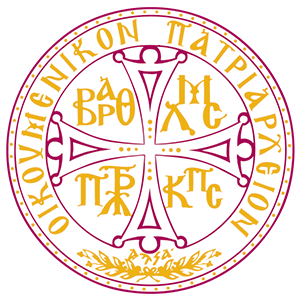LIVESTREAM SERVICES
Services are Live-streamed on our Facebook page: St. John Chrysostom Greek Orthodox Nashville, TN
A NOTE FROM THE BOOKKEEPER
Thank you to those who have continued to offer their financial support.
Fewer people attending Services means fewer donations. If you are not currently attending services out of health concerns, please remember to send in your donation.
Due to the extra administrative time and expense for the bookeeping firm to record online donations, the preferred and by far, most efficient way to make an offering is either by a personal check, or by going online to your bank, and doing a one-time set up for a free, regular (weekly/monthly) automatic check to be sent to:
St. John Chrysostom Greek Orthodox Church
P.O. Box 90162
Nashville, TN 37209
FOR OTHERS, NOT JUST OURSELVES
We may not know exactly when this current pandemic will end, but it too will pass. Throughout history there have been pandemics. Yet the Church has continued to grow through the centuries. The majority of the members of our Parish are preferring to heed the common precautions that are proven to be the most effective means of preventing the spread of disease. Among our brothers and sisters, think of those who might be most at risk within our parish community. There may be those who have underlying health conditions that place them in harm's way. Let's be mindful of our vulnerability, and comply with the guidelines that health professionals around the world have asked everyone to embrace. Let's humble our pride that tells us that we are invincible. Let's think of others well-being, rather than our own 'freedom'. All this being said, this does not prevent us from coming to church to maintain and support the church. Let's ask ourself, 'How could the Church (and our Faith and the Gospel) have survived through the centuries if people did not come to maintain and support the church'? This can be done now on an individual basis or with someone else as long as we follow the health guidelines. Many of the needs can be accomplished indoors. Some needs are outdooors and allow greater freedom.
LIGHT A CANDLE
Along with your weekly/monthly offering, you may include a list of names to be commemorated at the Sunday Liturgy. We will light a candle for you for each list of names submitted. You will be able to see your candle lit livestream if you wish.
May the Lord be gracious to us and bless us, and shine the light of His countenance upon us, and have mercy on us, and drive away every malady and despondency!


 Sometimes at camp, campers have to adapt to guidelines and schedules they aren't necessarily used to. However, these ultimately allow everyone to thrive at camp and maximize their time there. In this video, Ionian Village's Director of Support and Outreach and school Social Worker Marissa Garoufalis dives into how we can apply camp experience to the current pandemic in order to disconnect, experience, and ultimately rejuvenate during this time.
Sometimes at camp, campers have to adapt to guidelines and schedules they aren't necessarily used to. However, these ultimately allow everyone to thrive at camp and maximize their time there. In this video, Ionian Village's Director of Support and Outreach and school Social Worker Marissa Garoufalis dives into how we can apply camp experience to the current pandemic in order to disconnect, experience, and ultimately rejuvenate during this time.
 It is a shared conviction that, in our time, the natural environment is threatened like never before in the history of humankind. The magnitude of this threat becomes manifest in the fact that what is at stake is not anymore the quality, but the preservation of life on our planet. For the first time in history, man is capable of destroying the conditions of life on earth.
It is a shared conviction that, in our time, the natural environment is threatened like never before in the history of humankind. The magnitude of this threat becomes manifest in the fact that what is at stake is not anymore the quality, but the preservation of life on our planet. For the first time in history, man is capable of destroying the conditions of life on earth.